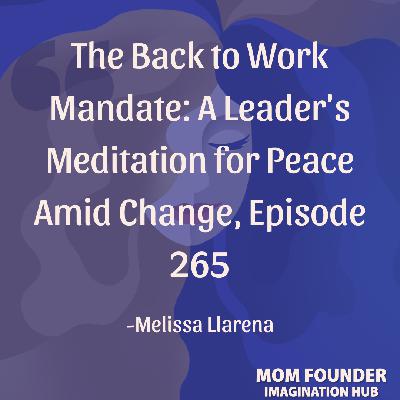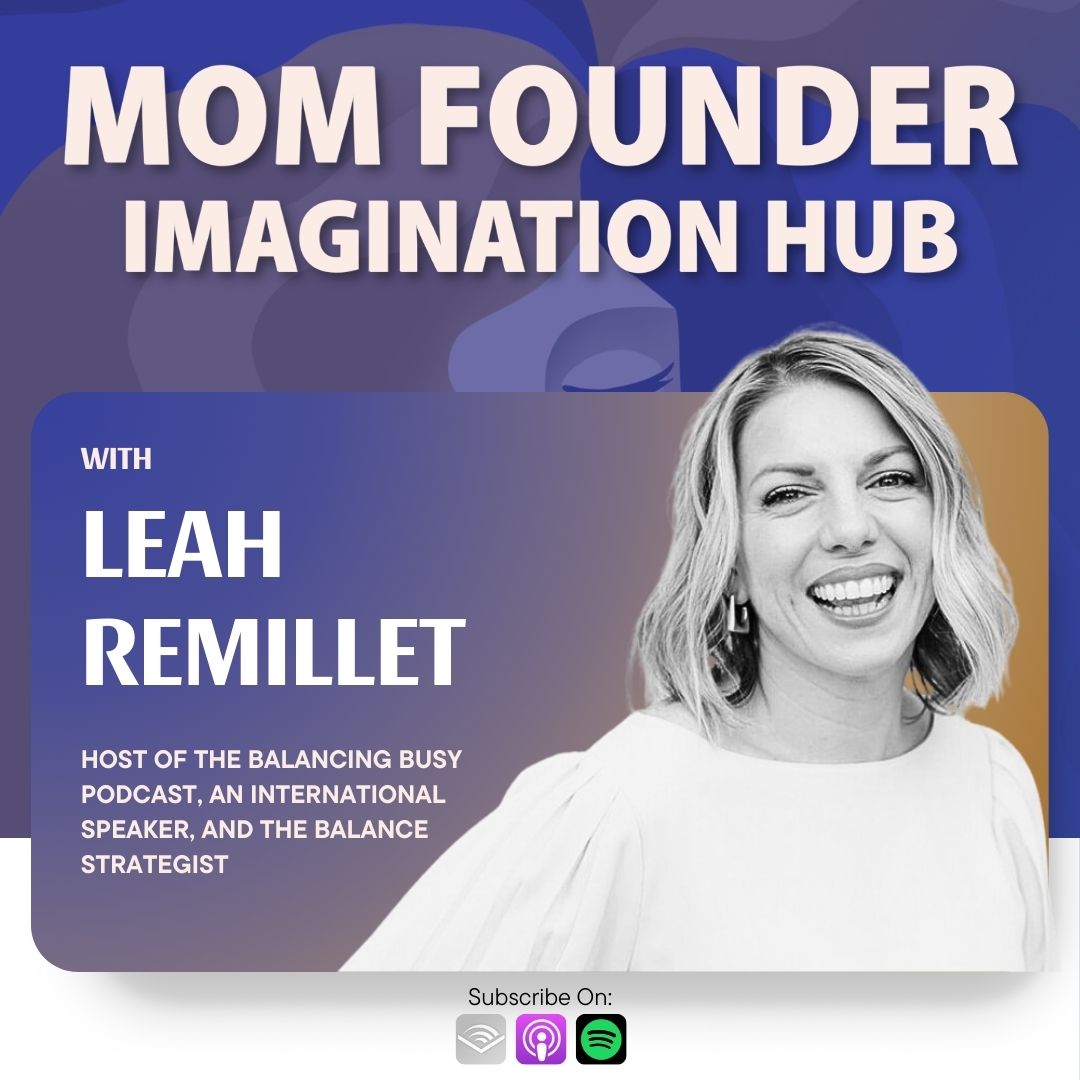267: Why Stressed Professionals Quit Meditation (And How Not To)
Description
Introducing Mountain to Molehill: A Mindfulness and Meditation Newsletter
Mental Health Melissa Llarena
Why Stressed Professionals Quit Meditation (And How Not To)
Meditating is a good alternative to that third glass of wine at night – and might even serve as a replacement for psych meds for the most restless, stressed-out marketers, sales professionals, and ad executives dealing with the unpredictability of their virtual lives, workplace, home life, and everything else that gets logged in your head as stressful mountains to climb when in reality you're looking at a molehill you can simply hop over.
Q: Why did I write this article encouraging you to return to meditation instead of relying on quicker fixes for stress?
A: I know firsthand how psych meds play out. I've been an unwitting observer of a personal longitudinal study as the daughter of a mom who has been on them since 1982. My thinking is simple: if you can avoid them, do. I don't say this as a psychiatrist – I say it as a witness who has watched decades of science experiments performed on my single parent, from my toddler years through today, when the impact of this four-decade-long chemical warfare is irreversible.
This deeply personal experience is why I'm committed to my mental health, and why I believe adopting and keeping a meditation practice is a powerful approach to life's realities. A consistent practice will increase your capacity to bear any weight you may be carrying – something we all need, don't you agree?
Now, I know it's hard to adopt a practice from scratch, so I decided to focus on those of you who once meditated and might secretly wish to return. Let's start with the top reasons for this kind of "quiet" quitting. Notice the pun? I'll try to keep you chuckling throughout this read. But first, let's look at some serious stats...
According to the Journal of Alternative and Complementary Medicine, approximately 60% of people who start a meditation practice discontinue within the first year. The primary reasons include:
1. Perceived lack of time
2. Difficulty maintaining consistent practice
3. Feeling they're "not doing it right"
4. Not seeing immediate results
Let's explore doable workarounds for these four reasons, considering our modern omnichannel lives. Interestingly, this study aligns perfectly with a recent LinkedIn survey I conducted, asking mid-career professionals what they wanted me to cover. Time emerged as the top concern, so let's start there.
Perceived Lack of Time
Let's talk about time – or the common excuse of not having enough of it. Let's dispel the idea that you're too busy to drop in and pay attention to your breath for five minutes a day. Where can you steal these five minutes? Let's start with the low-hanging fruit. According to the Harvard Business Review, professionals spend an average of 28% of their workweek managing email. That's about 3.1 hours per day reading, writing, and responding to emails, with an estimated 25% of those being unnecessary or unproductive.
Take my librarian email saga, for example. I received a ridiculously long email about a book renewal that could have been summarized in three sentences. Instead, this well-meaning librarian wrote paragraphs explaining a simple process. I thought to myself: she could have meditated in the time it took to write this novel of an email. Seriously, couldn't you shave five minutes from your 3.1 hours of daily email writing for a relaxing breathing session? I have full confidence you can steal some time from email writing to meditate. It can be that simple – or perhaps meditation can become your pre-meeting ritual?
My pandemic meditation journey was ritualistic. I needed a tool to reliably catch my breath and return to my three sons as the calmest version of myself; the stakes were staring me in the face. I'd drag my son's bean bag out to my wrap-around balcony – my "lanai" in honor of the Golden Girls – and sit under the sun. The benefits were two-fold: it gave me something to do during lockdowns, and I returned refreshed enough to homeschool three sons. Ultimately, I returned to my teaching post with greater patience, not totally "unsnappable," but feeling more able to relax.
Pro Tip: You can always find time when a boss drops a last-minute request. Somehow, you'll complete other assignments, shorten your timeframe, stay up later, or wake up earlier. Imagine treating meditation as vitally as that urgent work assignment. This is just your way into starting a practice – not necessarily how you'll have to make it stick – which brings me to the second reason for quitting.
Difficulty Maintaining Consistent Practice
Willpower is overrated. There, I said it. If I had unlimited willpower, I wouldn't have half a bottle of wine in my fridge or pair my glass with partially dry Manchego cheese at six p.m. when I nestle in my corner of the sofa before my sons fight me to the death to take over the TV. This is why I endeavor to do as much as possible before 9 am every single day – it's not because I want to challenge myself but because I don't trust myself as the day gets later. There's science to back this up, which is why I apply simple heuristics to maintain a consistent meditation practice.
My decision-making process is brutally simple:
· Question: Do I plan to eat today?
· Answer: Yes.
· Action: Then I guess I'll go to the gym, walk 10K steps, and meditate before starting my workday.
Don't think you need to do these things before meditating or before 9 am like me. Instead, use my question to spark your own chain of daily habits. Yours can be as simple as:
· Question: Do I plan to breathe today?
· Answer: Yes.
· Action: Then I'll take 5 minutes to pay attention to some of those breaths.
This decision tree below is for those of us who've been trained to overthink... just follow the nodes. I've found that thinking is often what gets in our way. Arnold Schwarzenegger shared the same sentiment about his workouts in his Netflix documentary: he said he could think after his workouts. Same goes for meditating. Think later. See Substack. https://open.substack.com/pub/melissallarena/p/why-stressed-professionals-quit-meditation?r=fetqt&utm_campaign=post&utm_medium=web&showWelcomeOnShare=true
My meditation practice looks different every day. Sometimes I'll light a candle, drop on my carpeted floor with earbuds, and hum along to a guru telling me: "I am not my body. I am not my mind." Let's call this my "scruffy, get it done" meditation. Other times I've meditated with my eyes open during a commute. I believe in habit stacking – pairing one existing habit with a new one.
Not Seeing Immediate Results
On Halloween 2023, I self-published my book "Fertile Imagination." My goal was to become an Amazon bestseller. While my three boys were putting on Halloween costumes, I was copy/pasting/pitching/praying. My ranking wasn't moving despite my efforts. I had two choices: toss my laptop out the window and curse Bezos, or maintain unwavering belief in the process












